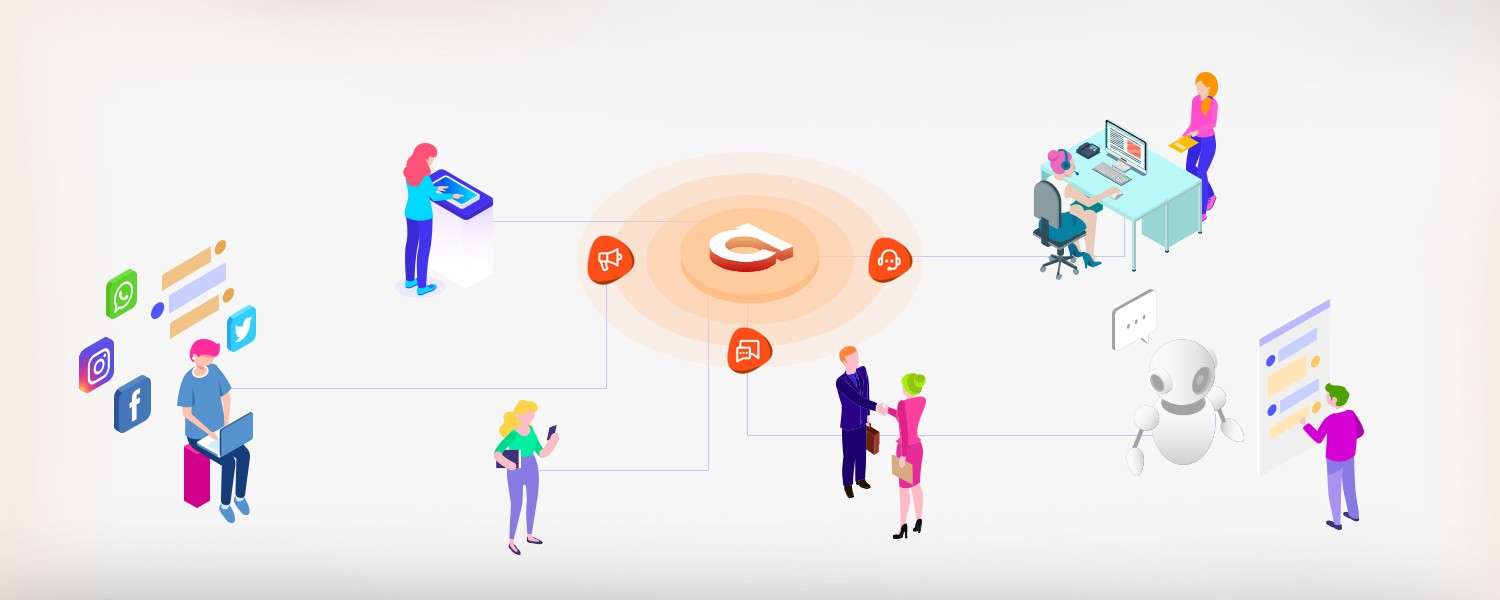“Customers are transitioning to communicating and buying through digital channels.” – Gartner, 2013 Survey
This statement by Gartner highlights a hard reality of today’s customer behavior.
Customer loyalty is no more dependent simply on “customer satisfaction”, as it was believed a decade ago. With the popularity of the Internet and social media channels, customers are becoming more aware and depend on each other to make purchase decisions, rather than just brand loyalty.
This new trend in customer behavior has pushed businesses to focus more on customer engagement to transform “satisfied” customers into brand-loyal advocates. If you are a business that hasn’t hopped on to the “customer engagement” bandwagon, here is a quick introduction for you.
What is Customer Engagement?
The term “Customer Engagement” can be defined in various ways based on the context and objective of engaging your customers.
CX Dictionary defines it as:
“Customer engagement is the emotional connection between a customer and a brand. Highly engaged customers buy more, promote more, and demonstrate more loyalty. Providing a high-quality customer experience is an important component in your customer engagement strategy.”
At its core, customer engagement is simply being proactive rather than reactive with all your customer interactions. Having the right interaction involves initiating the right conversation with the right people at the right time, using the right channel. It is an ongoing process of starting, cultivating and maintaining healthy customer relationships.
Additionally, the interactions don’t necessarily need to be between a customer and your brand. Even customers can engage among themselves, provided the topic of discussion is your business.
In the past, after-sales customer interaction would happen only through customer support, which was more focused on issue resolution rather than personalized customer engagement. Now, businesses have evolved and are heavily dependent on personalized customer engagement strategies to create brand loyal customers.
How Important is Customer Engagement?
Various studies and statistics have shown that a business’ success is directly linked to how engaged are its potential and current customers. If you can grasp and hold the attention of your customer in a competitive and saturated market, you are on the right track to success. An engaged customer is more likely to speak positively of your brand, thereby boosting sales and loyalty.

However, today’s customer is highly demanding and is always looking for more personalized experiences. They constantly compare businesses with the best, and are keen on having conversations rather than simply sharing redundant information. For example, in the hospitality industry, customers prefer that you already know who they are and what they want based on past purchases and interactions. You can fulfill this expectation, only with an effective customer engagement strategy.
A well planned customer engagement strategy can help you understand what your potential customers expect and are interested in, as well as when and where they need it. Using this information you can proactively start personalized and meaningful conversations with them. Additionally, it can assist in building trust, identify the pain points of your existing customer helping you to retain then, and reduce business churn.
How Can Asista Help You with Customer Engagement?
Customer engagement involves interacting with your customers over various channels that they prefer. Asista – a customer engagement software, helps you capture all customer interactions into one portal so that you don’t miss out on any conversation and are able to provide proactive assistance. Also, using Asista you can initiate meaningful conversations with your customers and provide them the best personalized support experience.

